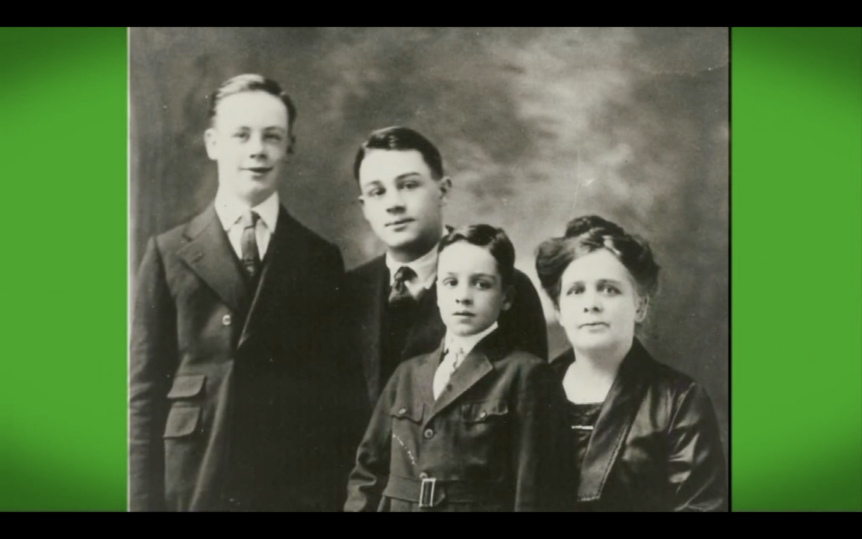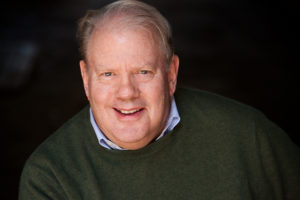
Column by Mike Houlihan: Father’s Day and Root Street Dreams
By Mike Houlihan
June 19, 2020
My dad was 91 when he died, born in 1904.
And on Father’s Day, I’ll think of him.
He was a rough old son of a gun who fathered seven kids, never went to high school, but through sheer tenacity and faith, managed to leave each of us a legacy. And I’m thinking about that legacy right now.
His father was an iron worker who fell off a building and was killed when dad was only 11, leaving my dad and his mother and two brothers on their own.
They didn’t have personal injury attorneys in those days. They were lucky if there was even enough dough to bury him.
That was 1915.
Just think of Chicago, the South Side of Chicago, in 1915.
My dad was Bill, and his two older brothers Paul and Frank later became Chicago cops.
Their mother, my grandmother, eventually died and left the trio of Houlihan boys to fend for themselves. With the older boys becoming cops, Bill went to work, eventually, at the Chicago Board of Trade.
He was sharp, adept with numbers and he met another guy who was also adept with numbers, by the name of Joe Riley. They formed a company, the Radio Materials Corporation. They made radio parts and they made a bundle.
Along the way my dad married Sissy Cusack. And then came my brothers Paul, Danny, Willie, John, Tommy, my sister Mary, and me, the baby, Mike.
In 1960 he built my mother a house at 93rd and Hoyne in Christ the King parish. She called it her “dream House.”
The house had five bedrooms and seven bathrooms. My dad’s old pal, Whitey Cronin used to say that their house “seats seven”.
But there was trouble in paradise. Mom and dad fought a lot. Eventually they had separate bedrooms.
That’s how I came to share a bedroom with my dad. I was in sixth grade, and had to fall asleep quickly, because his snoring was a bad freight train.
It was cold on the night of my CK school football banquet. It was below zero. Chicago cold.
And my old man got quite a load on. When we got home, he had a bottle of Old Fitz with him in the bathroom. Through the door I could hear him arguing with the guy in the mirror:
“Listen you piece of s–,” he said. “My kid don’t lie! I also got two boys in the seminary, you lousy f-ing ass—h#@%$!”
I couldn’t sleep. I was awake in bed, listening to him argue with that angry face. And then the bathroom door opened. And he staggered out toward me.
And there he fell, wedged between his bed and my desk.
“Mike, Mike!” he said. “Help me up!”
But I could not get him up. I was scared. I was struggling to lift him when the bedroom door opened. My brothers Paul and Willie grabbed me. They told me to sleep in their room. Arguing ensued as it always did.
The entire household was awake. All the lights were on, the better for all to witness the family drama. It was probably around midnight.
Mom was in her robe, upset. Dad was pissed off too.
My brothers were trying to hush it up and pleading with him to just shut up and sleep it off.
But the old boy was having none of it.
He dressed, put on a clean shirt and tie, and started down the stairs to leave. He looked at all of us and offered four angry words:
“Who Are You People?”
He grabbed his hat and coat and made for the front door. I yelled, “Dad! Where are you going?”
“I’m going back to Root Street, ” was all he said, slamming the front door as walked out into he made his way out into the darkness of a frozen Chicago night.

Sis Cusack & Bill Houlihan
Paul told me later that he followed dad in the car and watched him get on the 95th Street bus going east.
He got off at Vincennes to transfer and stood on the corner freezing his ass off as Paul pulled up, cajoling him into the car, until dad finally relented but only “just to warm up.”
Paul finally got him home, but the old boy was up the next morning at 6AM to go to work.
I sat at the kitchen table watching him, both his trembling hands on the coffee cup, as his eyeballs screamed in pain, but he never gave it up.
He left for work every day walking down to the Rock Island, to catch the train downtown and then grab the Ravenswood EL to the end of the line to get to his office at 4242 West Bryn Mawr Avenue.
After he left that day, I asked my mom, “Did he say anything about last night?”
She sneered across the table.
“NOT ONE WORD!” she said.
Dad was stoic.
Many years later, I visited him in the hospital and he told me they put a catheter on him. I had no idea what that was, and asked. And through gritted teeth he told me, “They stuck a tube up my peeeenis.”
It hurt just hearing him say it.
In later years I drove down Root Street. It’s near Canaryville, in the shadow of the Unnion Stockyards. e.
What dreams have been dreamed there? What dreams have been broken there?
Root Street was where my old man got his MBA, his graduate degree in the school of hard knocks; where he and his brothers bare-knuckled their way through life.
I think about him every day, especially these days, as I’m an old codger myself a grandpa, and the grandkids don’t know about Root Street.
What did he go back to find on Root Street on that night so long ago?
Maybe dreams about the father he lost at 11, and the brothers he’d outlived?
Or just the guts to get up every day and do it all over again?
If there is a father’s legacy, it’s that. He was far from perfect. We didn’t have a perfect storybook life. He wasn’t a perfect man. Who is?
But there was that code he formed, like other men of his time, about getting up every day to do it again for the family, whether you feel like it or not.
Always getting up to do it again.
That legacy.
I know we’ll meet again someday, Dad… on Root Street.
-30-
Mike Houlihan is a Chicago writer and director. Here is a link to his most recent column for johnkassnews.com.
 Known around town as “Houli,” he is former features columnist for The Chicago Sun-Times, Irish American News and currently Chicago correspondent for The Irish Echo. He began his career in 1973 as an apprentice with The American Shakespeare Festival, appearing in the classics there and in regional productions across the nation as well as Off-Broadway, on Broadway, on TV and in major motion pictures. He is a playwright and author of anthologies “Hooliganism Stories” and “More Hooliganism Stories” and the gonzo Mayoral campaign journal “Nothin’s on The Square”. Founder of the Annual Irish American Movie Hooley film festival each Fall at the Gene Siskel Film Center. He was honored as 2020/2021 “Irishman of the Year” by the Emerald Society, the Irish American Police Association.
Known around town as “Houli,” he is former features columnist for The Chicago Sun-Times, Irish American News and currently Chicago correspondent for The Irish Echo. He began his career in 1973 as an apprentice with The American Shakespeare Festival, appearing in the classics there and in regional productions across the nation as well as Off-Broadway, on Broadway, on TV and in major motion pictures. He is a playwright and author of anthologies “Hooliganism Stories” and “More Hooliganism Stories” and the gonzo Mayoral campaign journal “Nothin’s on The Square”. Founder of the Annual Irish American Movie Hooley film festival each Fall at the Gene Siskel Film Center. He was honored as 2020/2021 “Irishman of the Year” by the Emerald Society, the Irish American Police Association.

